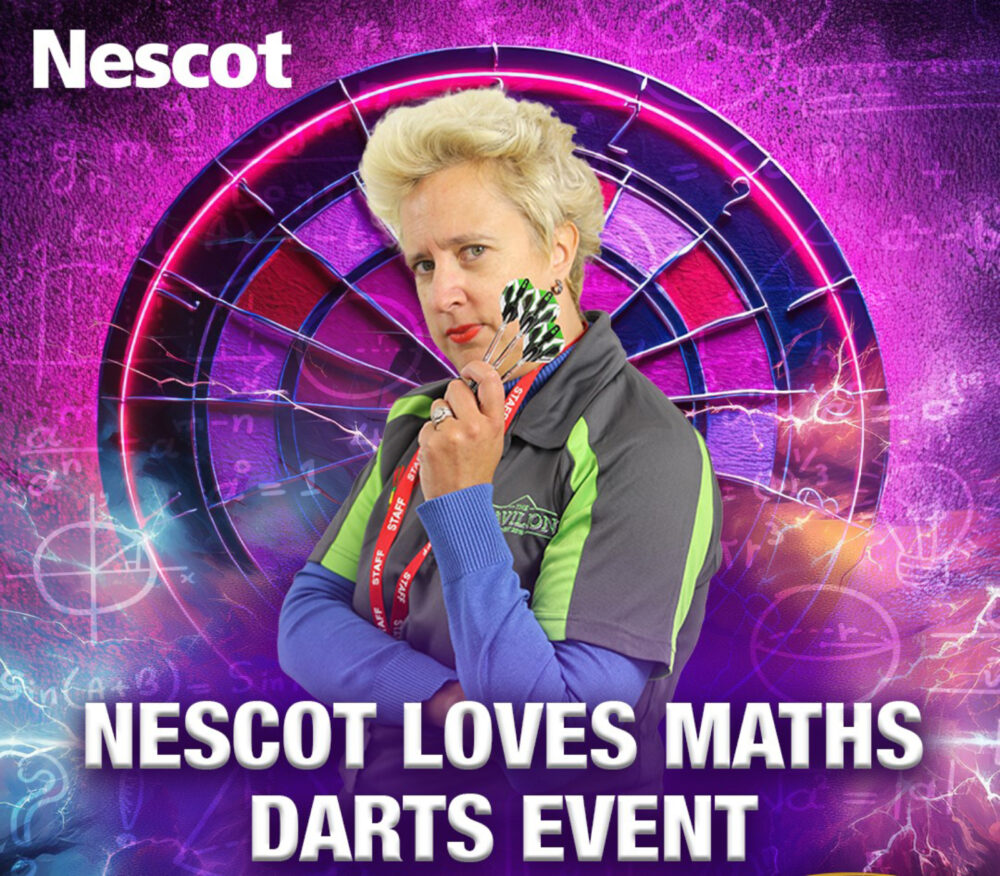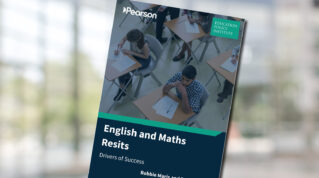Last September, the maths team here at Nescot asked me to help them with the perennial problem of engaging our GCSE maths retake students.
I had recently launched Nescot’s education seminars across the college, where we invite high profile leaders from the worlds of business, sport and the community to share their stories with students.
The maths team asked if we could find someone to give a talk about the importance of maths. My first though was ‘does anyone know Carol Vorderman?’ (no one did). Then my mind turned to my sporting passion – darts.
Darts isn’t just any old sport, it’s the second most popular sport on British TV screens. It hinges on the player’s ability to use mental maths to check out from 501 – ensuring they finish on a double.
Helpfully, I had previously worked in sports PR and still had contacts in the darts world which I’d kept alive through my annual pilgrimage to Lakeside and on the odd occasion I could get tickets to Ally Pally (the PDC World Darts Championships).
I speculatively emailed an old contact (who I met while gate crashing the green room at Lakeside to get a selfie with Wolfie) to see if they could help with a speaker, or provide dart boards.
The response I got back from the darts community was incredible. After one phone call, I was in receipt of boards, surrounds and darts. But what happened next was genuinely beyond anything I expected.
The darts management company suggested an entire day of darts events at the college where top professionals and referees could meet with our students, inspire them and help them develop their mental maths skills.
So in March, Nescot’s very own ‘stand up if you love the darts and maths’ day will begin.
The event will focus on promoting the importance of maths and numeracy skills across the college and promoting darts as a truly inclusive sport that anyone can access.
Nescot will also launch a darts club and league. The inaugural Kapsalis trophy will be contested between Nescot and our friends at East Sussex College Group, with support from AoC Sport as we look to roll out a wider league.
Players attending will also run smaller sessions targeting specific student groups, including our foundation learners, 14-16 students, construction and e-sports classes.
As for the players, we’ll be welcoming a trio of legends – Paul ‘The Asset’ Nicholson, Devon Petersen (the African Warrior) and three times champion of the world – Mighty Michael Van Gerwen.
The response from students and staff has been inspirational. Dart boards now adorn every maths classroom (and a few staff rooms!) and the creativity in activities is epic.
‘I’m on the lookout for a sponsor for speedboat prizes‘
The plumbing department is working on a task where students measure angles they are bending for piping and have to take out the scores when they calculate the right number.
Maths teachers who were fans of the ITV show Bullseye are also setting challenges around ways to score 101 or more with six darts. I’m on the lookout for a sponsor for speedboat and hostess trolley prizes!
I have had staff and students coming up to my office wanting to sign up and asking how they can get involved. The staff darts league is in danger of becoming very competitive, with teams emerging across the college.
The event and opportunity to play a leg against sporting icons is encouraging attendance and motivation, with a record turnout for a college maths challenge just before half term.
The darts event itself is a springboard to energise a love of maths, but also to fulfil my new ambition to be (the first?) college darts academy. It also gives me an excuse to walk around college in my vast array of darts shirts and to share the wonderful benefits of this sport.
And the benefits are…
- Mental health: Darts enhances cognitive function, reduces stress and boosts confidence
- Social interaction: Darts is a fun and social activity
- Physical activity: Walking to retrieve darts keeps you active
- Hand-eye coordination and motor skills: The repetitive act of throwing darts refines motor skills and coordination
- Problem-solving: There’s more than one way to get from 501 to zero.
- Mathematical thinking: There’s a lot of mental maths at play.
GAME ON!

















Your thoughts